On January 23, 2014, the Department of Defense (DoD) and General Services Administration (GSA) Joint Working Group on Improving Cybersecurity and Resilience Through Acquisition (Working Group) submitted its eagerly anticipated final report on integrating cybersecurity requirements into all federal procurements. This report, which satisfies Executive Order (EO) 13636 and Presidential Policy Directive (PPD) 21, includes recommendations on the increased use of cybersecurity standards in all federal acquisition activities, including strategic planning, capabilities needs assessment, systems acquisitions, and program and budget development.
The final report is perhaps most notable as another step toward an era where most every government contractor must satisfy baseline cybersecurity requirements. While the final report does not provide explicit guidance on the details of creating such a new procurement environment, in light of recent, imminent and forthcoming government activity, including the final rule imposing cybersecurity and reporting obligations on DoD contractors (issued November 18, 2013 and summarized here), the upcoming final cybersecurity framework of the National Institute of Standards and Technology (NIST) (to be released in mid-February), and the forthcoming final rule governing the safeguarding of government contractor information systems (likely finalized next year), we view this final report as a bellwether. Government contractors who ignore the final report and the course it has set do so at their own peril.
Cybersecurity issues will increasingly affect agency standard setting, coverage issues and incentives, government audits and investigations, security breach litigation, and other business drivers. Government contractors and other companies that handle government information or supply components that could be compromised electronically must begin, to the extent they have not already done so, to think both strategically and pragmatically about developing an integrated approach to these cybersecurity issues.
Background
On February 12, 2013, President Obama issued EO 13636 – Improving Critical Infrastructure Cybersecurity. Section 8(e) mandated that the Working Group, in consultation with the Department of Homeland Security (DHS) and the Federal Acquisition Regulatory (FAR) Council, “make recommendations to the President . . . on the feasibility, security benefits, and relative merits of incorporating security standards into acquisition planning and contract administration.” Section 8(e) also directed the Working Group to “address what steps can be taken to harmonize and make consistent existing procurement requirements related to cybersecurity.”
On May 13, 2013, the Working Group published a request for information (RFI), inviting public comment on the appropriate cybersecurity measures and parameters for federal procurements (summarized here). The Working Group also consulted with representatives from the DoD, GSA, DHS, FAR Council, the Office of Federal Procurement Policy, NIST, and others before issuing the final report.
Working Group Recommendations
The final report makes six recommendations, including that the federal government and/or contractors, as appropriate, should:
(1) institute baseline cybersecurity requirements as a condition of contract award for appropriate acquisitions;
(2) address cybersecurity in relevant training;
(3) develop common cybersecurity definitions for federal acquisitions;
(4) institute a federal acquisition cyber risk management strategy;
(5) include a requirement to purchase from original equipment or component manufacturers (OEM), their authorized resellers, or other trusted sources, when available, for appropriate acquisitions; and
(6) increase government accountability for cyber risk management.
For contractors, the most helpful recommendations ask the government to clarify, with more specificity, the standards to which contractors will be held accountable. For example, the first recommendation correctly observes that, “[o]ften, cybersecurity requirements are expressed in terms of compliance with broadly stated standards and are included in a section of the contract that is not part of the technical description of the product or service the government seeks to acquire.” This, the report concedes, “leaves too much ambiguity as to which cybersecurity measures are actually required in the delivered item.” Accordingly, the report recommends expressing baseline cybersecurity requirements as part of the acquisition’s technical requirements and including performance measures to ensure the baseline is maintained and risks are identified. The final report also recommends common cybersecurity definitions, which if adopted would dramatically advance anxiety about contractors’ and the government’s current and near-future cybersecurity obligations.
Though the recommendations are instructive, the final report does not actually mandate specific baseline requirements or propose common cybersecurity definitions. Nor does it propose a cyber risk management strategy or otherwise attempt to identify the acquisitions in which baseline requirements or OEM limitations are “appropriate.” Instead, the final report “intends” that others will harmonize these recommendations with ongoing rulemakings, cybersecurity standards, and statutory frameworks. In short: stay tuned.
Takeaways
First and foremost, change is coming. Although the final report recommendations are directed more toward government program managers and acquisition decision makers than industry, the harmonization of such recommendations with recent and forthcoming regulations, mandatory contract provisions, and other statutory requirements and protections will affect the industry directly and significantly.
Other critical points for government contractors to consider as the final report’s recommendations are implemented include:
- What cybersecurity terms will be defined, and what will those definitions look like? Considering that the definitions will be used government-wide, it is imperative that contractors provide feedback lest a definition be issued that is contrary to their interests, much less defies common sense;
- What topics will be covered in the cyber education program for the procurement work force? If procurement officials are not properly educated on a variety of threats, then they may fail to incorporate standards and requirements that are necessary for information protection;
- How will federal risk management strategy be developed? And will it be flexible enough to account for the rapidly evolving threat environment?;
- Are contractors prepared to fight back against cybersecurity requirements in federal acquisition programs that are being used to exclude otherwise acceptable vendors and technologies?; and
- How deep will these requirements reach into federal contractors’ business? In other words, will the cybersecurity obligations be limited just to public-contracting programs, or will they effectively become company-wide requirements regardless of the buyer?
The final report is a clear signal that mandatory baseline standards, training protocols, and other risk-based requirements are on the horizon. Those standards will likely be based on the NIST framework or, in specialized areas, even stricter protocols. Government contractors and other companies that handle government information must implement an integrated strategy that mitigates the risks associated with these cybersecurity issues, and where viable, the opportunities that these changes might create.
By Contributing Authors: Brian Finch, Justin Chiarodo, and Daniel Broderick from GTSC Strategic Partner Dickstein Shapiro

Brian Finch, a partner in Dickstein Shapiro’s Washington, DC office, is head of the firm’s Global Security Practice. Named by Washingtonian magazine in 2011 as one of the top 40 federal lobbyists under the age of 40, Brian is a recognized authority on global security matters who counsels clients on regulatory and government affairs issues involving the Department of Homeland Security, Congress, the Department of Defense, and other federal agencies. Dickstein Shapiro is a Strategic Partner of the Government Technology & Services Coalition. You can reach Brian at [email protected] (202)420-4823.

Justin Chiarodo represents clients in all aspects of federal, state, and local procurement law. Named by Law360 in 2013 as a “Rising Star” in Government Contracts, Justin has extensive experience in government contracts litigation, compliance, and regulatory matters, with particular expertise in the defense, health care, technology, and professional services sectors.

Daniel Broderick is a Washington, DC-based associate in Dickstein Shapiro’s Energy Practice. He focuses on regulatory and project development matters affecting clients in the electricity industry, including electric market design, municipalization, compliance, certification, and power purchase agreements.






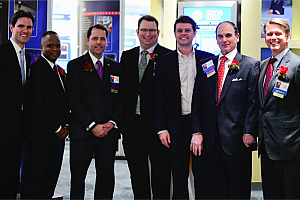

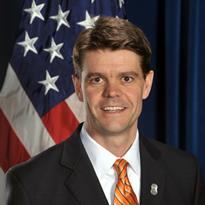 Federal Small Business Champions of the Year Award: John Morton, former Director, U.S. Immigration and Customs Enforcement & Jonathan Porter, Chief of Staff, U.S. Immigration and Customs Enforcement
Federal Small Business Champions of the Year Award: John Morton, former Director, U.S. Immigration and Customs Enforcement & Jonathan Porter, Chief of Staff, U.S. Immigration and Customs Enforcement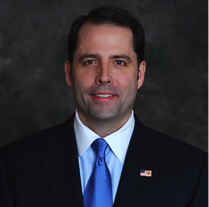 Market Maven of the Year Award: Chad C. Sweet, Co-Founder & CEO, The Chertoff Group
Market Maven of the Year Award: Chad C. Sweet, Co-Founder & CEO, The Chertoff Group Strategic Partner of the Year Award: Brian E. Finch, Partner, Global Security Practice, Dickstein Shapiro LLP
Strategic Partner of the Year Award: Brian E. Finch, Partner, Global Security Practice, Dickstein Shapiro LLP Strategic Advisor of the Year Award: Bill Carroll, Senior Partner, Strike Force Consulting
Strategic Advisor of the Year Award: Bill Carroll, Senior Partner, Strike Force Consulting
 Mentor of the Year Award: TASC & Mike Kelly, Vice President, Business Development, Civil and Infrastructure Security Group, TASC
Mentor of the Year Award: TASC & Mike Kelly, Vice President, Business Development, Civil and Infrastructure Security Group, TASC
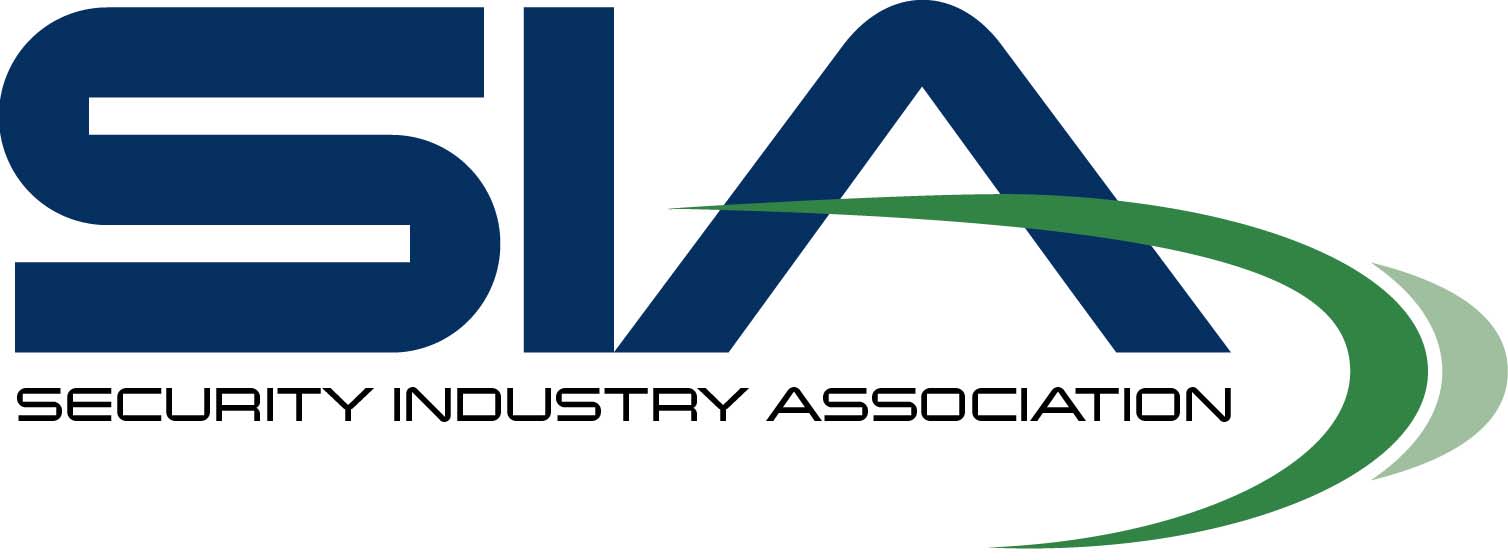





 AGENDA AT A GLANCE
AGENDA AT A GLANCE Keynote: Dr. Phyllis Schneck, Deputy Under Secretary for Cyber Security, NPPD, DHS
Keynote: Dr. Phyllis Schneck, Deputy Under Secretary for Cyber Security, NPPD, DHS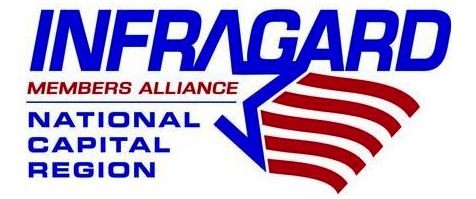

 Brian E. Finch
Brian E. Finch Graham (Rusty) Mathews
Graham (Rusty) Mathews
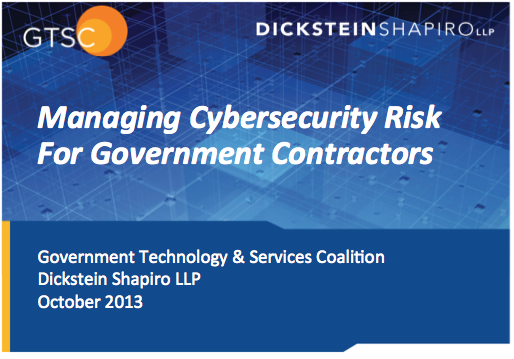

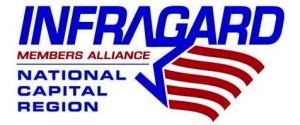 INCRMA is the leading public-private partnership working to improve and extend information sharing between private industry and the government, particularly the U.S. Federal Bureau of Investigation (FBI), for the protection of our critical national infrastructure.
INCRMA is the leading public-private partnership working to improve and extend information sharing between private industry and the government, particularly the U.S. Federal Bureau of Investigation (FBI), for the protection of our critical national infrastructure.
